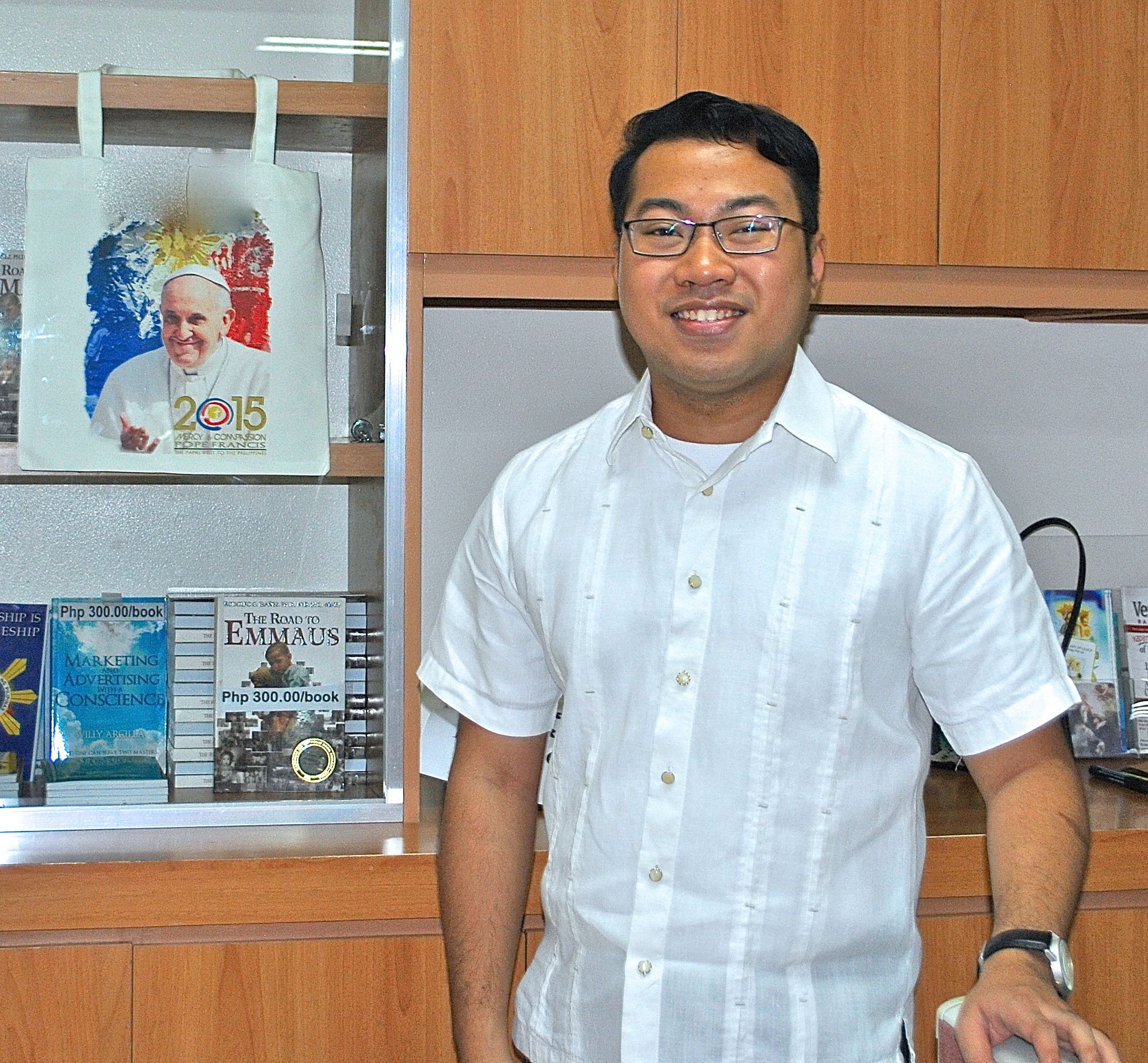
Fr. Angelo Parlan (N.J. Viehland)
A young man ordained during the conclave that elected Pope Francis says the pope "inspires" and "challenges" him as a priest.
Fr. Angelo Parlan, 28, was one of 10 priests from the Cubao diocese picked to celebrate Mass with Francis in Manila Cathedral Jan. 16.
"We were in a regular clergy meeting and at the end of the meeting Bishop Honesto Ongtioko said that the committee of the papal visit had asked to send 10 priests of the diocese and we would draw lots to determine who would go because the cathedral could only seat 2,000 people," Parlan told NCR.
"When my name was announced, I felt happy -- overjoyed. In fact I texted my mom about it at once," the priest said.
Ordained March 2, 2013, while cardinals were voting in a pope in Rome, Parlan calls Francis "the pope of my priesthood." Francis was elected pope on March 13.
"The person of the pope is really challenging priests here in the Philippines in a special way because the people have the tendency to exalt their priests," Parlan explained. "They give us special attention. You really will not get hungry if you are a priest in the Philippines. So the person of the pope challenges me to refuse when I think it is too much, to say no when I feel it is too much. It's something really inspiring, but a very big challenge."
Parlan is the only child of a national police officer and a civilian personnel who were active in the church. He entered Manila's San Carlos seminary at 15 years old, just after high school. He has been to Rome twice, first with a clergy pilgrimage of Cubao diocese then during a Marian pilgrimage with his mother to attend the beatification of Pope Paul VI.
But beyond travels, Parlan looks upon priesthood in the Philippines as being with the people.
"That is what diocesan priesthood is supposed to be, but here in the Philippines it's perhaps highlighted more because many people come to church, and every day you have lots of people wanting to see you, setting appointments," he said.
His parish, Christ the King, in Green Meadows, Quezon City, holds five masses daily, three in the main church and two in the community chapels daily. On Sundays, it offers 13 Masses, eight in the main church and five in chapels. Parlan and Fr. Jose Tupino also administer the sacraments, many of which are baptisms and weddings. A retired bishop who lives there helps out with Masses and guest priests are also invited.
"On weekends, I say three Masses. If I have a wedding, I say four. I'm told canon law says you can only say two but that won't do here," Parlan said. "On Wednesday, I usually have my interviews of couples who are getting married. Then we have groups, prayer groups. Sometimes we get invited to lunch or dinner with parishioners. Practically, that's my day beginning at 5 a.m. So it's really about being with people and families."
Visiting parishioners offers a chance for deeper relationship with families.
"Sometimes there are things they cannot understand,” Parlan shared. “They are devout people and they love the church, but they sometimes share question about the hierarchy in the church. They feel it is very patriarchal. They also ask why the church has to oppose reproductive health and family issue."
Other challenges to a parish priest is the sacramental nature of people's faith expression.
"As the Holy Father teaches, one thing that should be strengthened is formation of people in the teachings of the church so they can live these out in their relations with people," the priest said.
He is most impressed by Francis' humility and hopes he can imitate it.
"Being a church of the poor is not just about material poverty. It all stems from humility," Parlan stressed. He said he sees Francis’ ways in the Philippines as the ways of a parish priest. "He has never ceased to be a pastor, it seems," he said.
In his parish where most families are well-off, building this kind of church is specially challenging. How does a young priest build this kind of church?
"First of all, I have to preach it because it's the Gospel and people have to hear it. The challenge is to motivate parishioners to translate it in your own life. So here in our parish, we form people to become stewards. You have been given much. What will you do with what you're given according to what the Bible teaches," Parlan said.
Social services are alive though people do not immerse themselves in poor communities. They help impoverished communities of former factory and other manual workers, and priests go to these communities to pray. They also join parish activities.
"Because I’m young, I don't get easily tired. I get to pitch in for the bishop and pastor if they can't make it," Parlan said.
[N.J. Viehland is NCR correspondent in Manila.]
